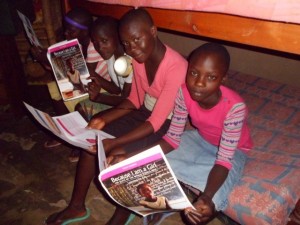More than a mountain to climb
In April I will be climbing Mount Kenya. It is almost 5,000m high (as high as Base Camp Everest), and will take me 5 days to summit the mountain and get back down. I’ll walk in temperatures ranging from 30c to -20c and, if I’m unlucky, potentially face the perils of mountain sickness.
I will walk for up to 8 hours a day on some days and on the last day will wake up at 2am to reach the summit by sunrise. And that’s only the beginning of my challenge….
One of the tenets of the way we approach our work at Future Considerations, is to have ventured into the territory that we take our clients into. We believe that the best way to stretch and support our clients is to do so from personal experience, knowing that we have ourselves surmounted the limitations that are often encountered on journeys through which we seek to learn and grow.
It was with this in mind that I committed to a month long adventure. Following my climb, I will remain in Kenya for a few weeks to work in a deprived community, Ndhiwa, in Western Kenya. I will have to work out what I can bring to the community to support its own self-development. I will have to work out how their culture works, how to communicate effectively (not using all the jargon I’m used to!), and how to build relationships in a culturally sensitive way. The project I will be working with is Team Kenya.
Team Kenya supports education, particularly for girls, and teaches women agri-business to fund more girls’ into secondary and tertiary education. The project also encourages independence with the aim that charitable donations will not be needed ad infinitum. Team Kenya has a UK organisation that does fund raising and linking of schools in the UK with schools in Ndhiwa. It also has a Kenyan organization, led and staffed by local people, thus supporting several local families.
When a girl in the developing world receives seven or more years of education, she marries four years later and has two fewer children. Every year of schooling increases a girl’s individual earning power by 10 to 20 percent, while the return on secondary education is even higher, in the 15 to 25 percent range. When women and girls earn income, they reinvest 90% of it into their families and the impact is intergenerational – a mother with a few years of formal education is considerably more likely to send her children to school, breaking the intergenerational chain of poverty. This strikes me as a cause worth stretching and challenging myself for.
The leading edge leadership development programmes that Future Considerations designs and delivers, in partnership with our clients, often include a challenge that takes participants beyond what is familiar to them. My intention is to return from my own development challenge better equipped to guide others on that journey so they have deeper self-awareness, greater confidence in unfamiliar situations, and a presence of mind that means they are inspirational to others.
It would be fabulous if you would sponsor my endeavours for the benefit of the people of Ndhiwa.





Leave a Reply